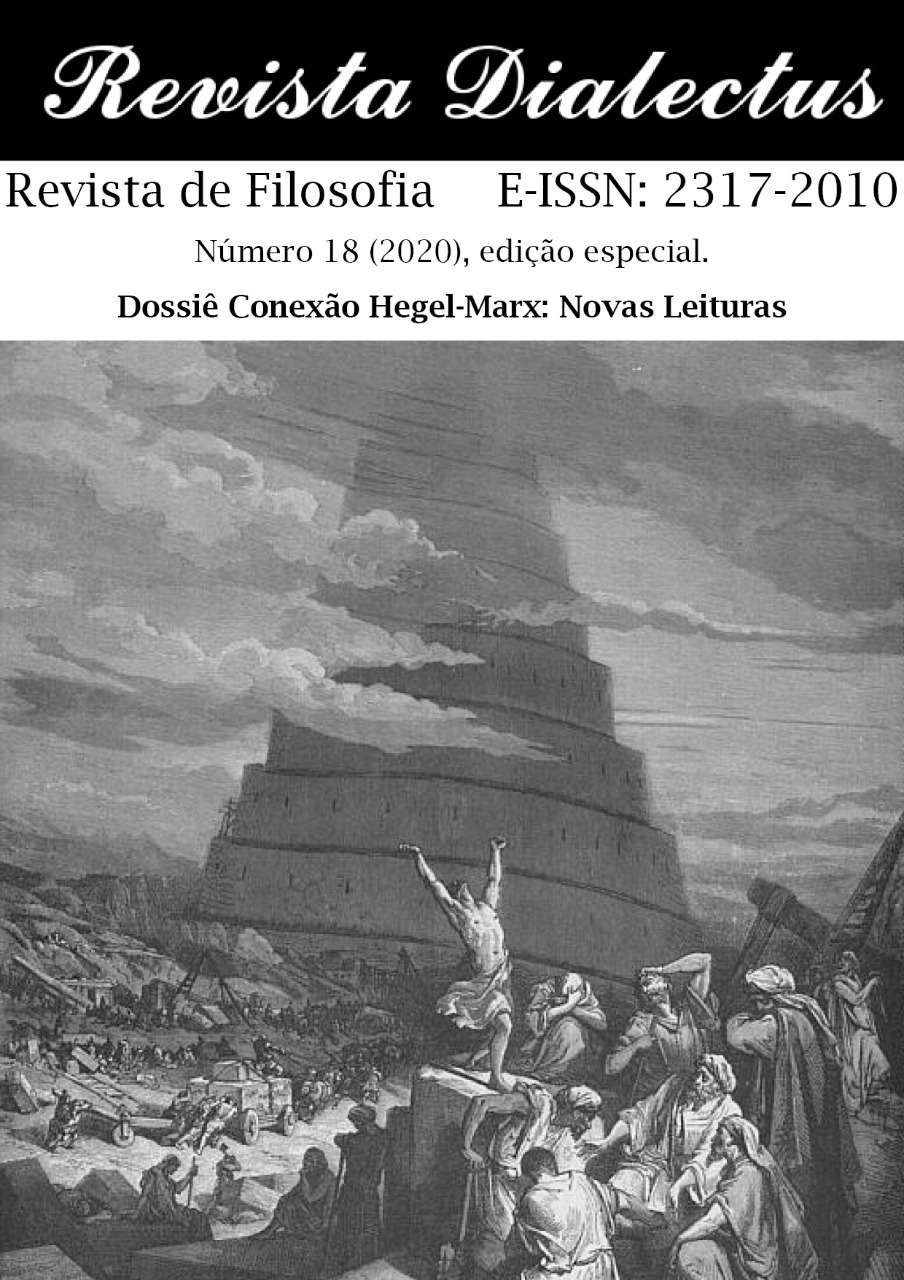PARA ALÉM DO IDEALISMO E DO MATERIALISMO: O CONCEITO HEGELIANO DE DIALÉTICA E A CRÍTICA DE MARX ÀS ‘MISTIFICAÇÕES’ HEGELIANAS
DOI:
https://doi.org/10.30611/2020n18id61179Keywords:
Hegel, Marx, Dialética, Idealismo, MaterialismoAbstract
A contribuição lança um olhar crítico sobre a crítica de Marx à concepção hegeliana de dialética. A interrogação fundamental do artigo é se Marx logrou desenvolver um conceito alternativo de dialética materialista frente à dialética idealista de Hegel. Uma ampla tradição dos estudos marxistas defendeu a possibilidade de extrair d‟O Capital uma dialética materialista. O problema de fundo é a discussão do status da lógica frente à filosofia real. O artigo rejeita essa possibilidade na medida em que discute criticamente o status da lógica frente à filosofia real, chegando com isso ao resultado que a aplicação de figuras da dialética hegeliana está situada no contexto da filosofia real e não serve para a fundamentação de uma dialética materialista alternativa que corresponda ao status da lógica hegeliana. O uso de figuras da dialética hegeliana por Marx não vai além do próprio uso que Hegel faz dessas figuras no desenvolvimento de sua própria filosofia real.
Downloads
Published
Issue
Section
License
Authors who publish in this journal agree to the following terms:
- Authors retain the copyright and grant the journal the right of first publication, with the work simultaneously licensed under the Attribution-NonCommercial-NoDerivatives 4.0 International (CC BY-NC-ND 4.0) License, which allows the non-commercial sharing of work, without modifications and with acknowledgment of authorship and initial publication in this journal.
- Authors are authorized to take additional contracts separately, for non-exclusive distribution of the version of the work published in this journal (eg publish in institutional repository or as a book chapter), with acknowledgment of authorship and initial publication in this journal.
- Authors are allowed and encouraged to publish and distribute their work online (eg in institutional repositories or on their personal page) at any point before or during the editorial process, as this can generate productive changes as well as increase the impact and citation of published work (See The Free Access Effect).



















